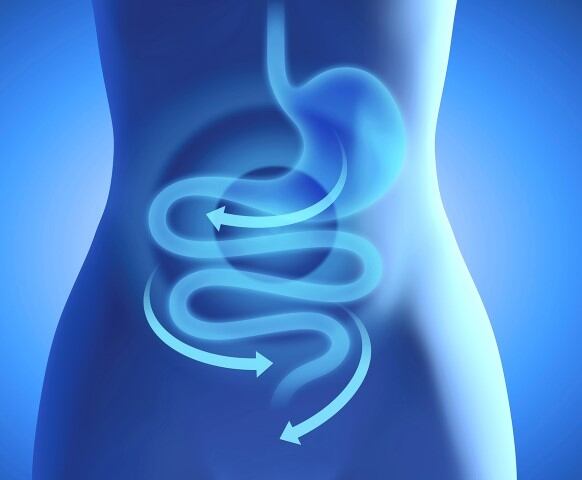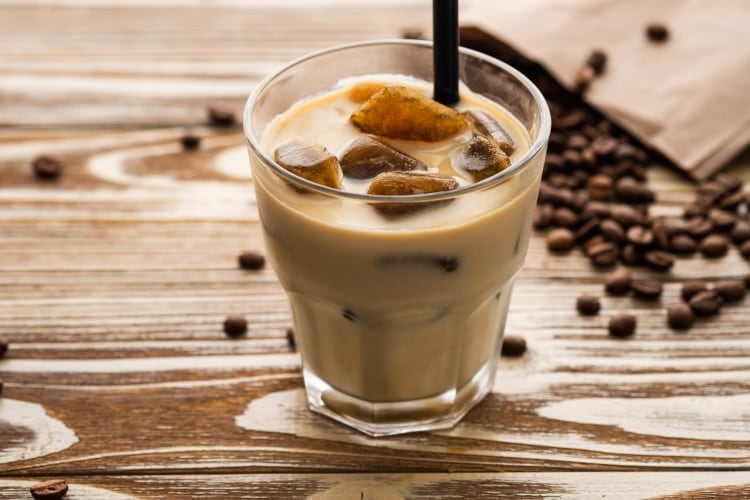According to MarketWatchi, the dairy market is also predicted to drive the growth of prebiotics by more than 9% in Europe in the coming few years.
Here, Thomas Schmidt, Marketing Director at BENEO, discusses how prebiotics are playing their part in helping manufacturers to meet consumers’ demand for overall well-being, particularly in relation to dairy applications.
The digestive health ‘mega-trend’ continues
Ever since digestive health was dubbed a ‘mega-trend’ back in 2010ii, gut-health has been growing in influence in the scientific, nutrition and consumer arenas, with digestive wellness highlighted as the number one food, nutrition and health theme for 2019 yet againiii. According to recent researchiv, three out of four (76%) UK consumers say, “digestive health is (very) important to me”.
In addition, two thirds of consumers choose foods that support digestive health, because they promote ‘feeling good and contributing to overall health’v.
According to recent researchvii, consumers are increasingly recognizing the importance of maintaining health and promoting disease prevention - especially as they get older - and are seeking out products that support their self-health strategies. This health support can come in many forms, but one that is creating a wide range of new product development opportunities for food and drink producers is the role that prebiotics can play in promoting digestive health.
Prebiotic fibers for digestive health
The beneficial link of dietary fiber intake to bowel function and digestive health is acknowledged by academics, industry and consumers alike. There are different fibers that are all important and promote different properties related to digestive health.

Some particular fermentable fibers have the unique property to be prebiotic in addition to being a fiber, i.e. they selectively promote some microbes within the microbiota universe, leading to the selective growth of beneficial bacteria; bifidobacteria are a marker for this.
Furthermore, the influence of fermentable fibers, in particular the ones leading to a prebiotic fermentation pattern and a positive support of the microbiota, reach out to other parts of the body and influence hunger-satiety (energy intake), mood and much more.
Inulin and oligofructose derived from chicory root belong to the very few proven prebiotic fibers and a comprehensive body of high-quality scientific studies (in excess of 150) confirms the health benefits of BENEO’s Orafti Inulin and Oligofructose chicory root fibers.
As well as a wealth of scientific studies, BENEO also has an exclusive EU health claim under article 13.5 for its inulin in promoting digestive health which can be combined with general health-related well-being claims under article 10.3 that include: “chicory inulin promotes digestive health”, “chicory root fibre supports a healthy and balanced digestive system” and “with prebiotic fiber”.
Overcoming the fiber gap
Many consumers still struggle to consume their daily recommended intake of fiber. In literature researchvii it was shown that consumers in European countries only manage to consume approximately half of their recommended daily intake of 25g per day.
With many consumers looking to promote their digestive health and bridge the fiber gap, BENEO assessed consumer preferences towards ‘fiber’ and the term ‘prebiotic’ across Europe.
According to researchviii, consumers agree that “the term prebiotic sounds healthy” and two out of three European respondents (73%) consider the term ‘prebiotic’ to be appealing. Following consumer testing, it was shown that well more than two thirds of consumers (70%) would find a prebiotic logo on their dairy drink ‘appealing or very appealing’, closely followed by spoonable yogurts, dairy alternative drinks, lactose-free products and children’s dairy products.
Prebiotics in dairy
Prebiotics are already playing their part in helping manufacturers to meet consumers’ demand for overall well-being, particularly in relation to dairy applications given the strong link in the minds of consumers between such products and gut health.
With a clear consumer interest in dairy products that offer prebiotic and digestive health benefits, there is a significant market opportunity for those manufacturers that are able to combine prebiotic fiber with dairy products that appeal to consumers.
Examples of such innovation include the Dos Pinos Dos Pinos in Line Fresa Helado de Yogurt (Strawberry Yogurt Ice Cream) from Panama.
This homogenized and pasteurized product features a mix of skimmed yogurt, strawberry pieces and ice cream. It is low in fat with 2% content, high in prebiotic fiber and is sugar-free. The product is said to help maintain blood sugar levels.
Also, Bieluch, a spoonable yoghurt in Poland that promotes digestive health and is supported by BENEO’s prebiotic logo, as well as Brownes Dairy’s ‘Wiggles’ that deliver prebiotic yogurt in pouches, to appeal to young consumers.
The BENEO-Technology Centre has also developed a range of innovative new product concepts that incorporate prebiotics and offer people convenient ways to increase their fibre intake, such as a fibre-enriched, prebiotic ready-to-drink coffee beverage that promotes digestive health while keeping the blood glucose level in balance.
This Ready-to-Drink coffee contains BENEO’s inulin chicory root fibre and next generation sugar, Palatinose. With the inclusion of BENEO’s natural prebiotic fibres a “high fibre” and “source of fibre” claim, respectively can be made on pack.
As the market data shows, there is clearly an appetite for products that promote good digestive health amongst consumers and now functional ingredients providers, such as BENEO, are creating very real ways for manufacturers to make the most of this trend. There is still the potential for more consumer education in the arena of prebiotics, but with so many looking to add to their fibre intake and promote their digestive health, the market is wide open for new product development, particularly in the area of prebiotic dairy applications.
BENEO offers functional ingredients derived from chicory roots, beet sugar, rice and wheat. Key nutritional benefits are ‘less fat’, ‘less sugar’, ‘less calories’, ‘added fiber’, ‘gluten-free’ and dairy alternatives as well as energy management, digestive, bone and dental health. Key technological benefits focus on taste and texture improvements. Through the BENEO-Institute that provides decisive insights into nutrition science and legislation, and the BENEO-Technology Center that consults in application technology, BENEO actively supports customers in the development of more balanced and healthy food products.
i Source: https://www.marketwatch.com/press-release/prebiotics-market-size-industry-insights-top-trends-drivers-growth-and-forecast-to-2024-2019-03-19
ii Source: New Nutrition Business, Julian Mellentin
iii Source: 10 Key Trends in Food, Nutrition & Health 2019, Julian Mellentin, New Nutrition Business
iv Source: FMCG Gurus (2019)
v Source: BENEO conducted online quantitative consumer research in the UK and Spain. The survey was carried out in 2015 by Insites, a consumer research agency with offices in Belgium, the Netherlands, UK and the United States. The shown results are weighted average among the two countries, unless otherwise specified.
vi FMCGGurus Top 10 Trends 2019
vii Source: BENEO-Institute 2012
viii Source: BENEO prebiotic research, July 2017

